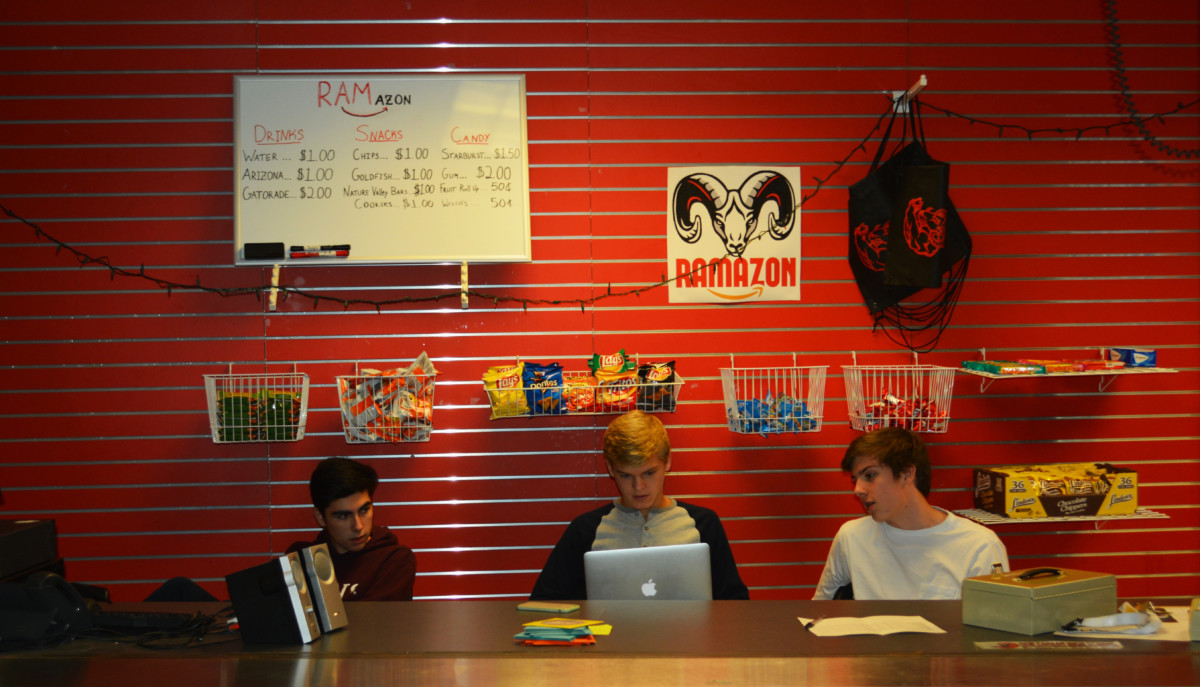Cat Levine, News Editor
@catcourant

At the end of the period, junior and Ramazon General Manager Diego Ospina can be found counting the day’s totals while other members of the Future Business Leaders class look over the inventory and assess what changes should be made. While this may sound simple, the school store has dramatically changed from the way it was run in the past. Ramazon is based in the lobby outside of the office during period six and sells products not offered by the cafeteria.
Diego was driven by his interest in business management to take the Future Business Leaders class. “I decided to take the class to learn more about how to run a business,” he said. “I want to take on a career related to business and marketing in the future, so having a little background knowledge on what I’m going up against helps a lot.”
Junior Robbie Hynes and the rest of his classmates put a lot of time into organizing Ramazon before the school store officially opened. “We had to survey the school population to see what types of products they wanted to buy, rename it from last year’s store, buy a new fridge, and make new ads to spread the word about it,” he said.
Diego’s goal is to improve the negative reputation that Ramazon gained last year so students see it as a serious business. “Last year, the school store had a very bad public image,” he said. “People used to perceive it as a joke, and nobody really took it seriously. People would steal things from the store, and then we would get in trouble for it. With our new teacher Ms. Martinich, we hope to change things around and create a better public image.”

As Ramazon’s Purchasing Manager, Robbie and his fellow classmates have many tasks to complete before closing up shop. “I have to take inventory everyday, and occasionally sit in the school store and sell the food. I also purchase the products that run out in the store, always making sure we meet the demand,” he said. “There are other people doing marketing campaigns, making customized products like water bottles and shirts, and then there is an accountant who keeps track of the money.”
Rachel Martinich, teacher of the Future Business Leaders class, is impressed by the revenue the students have earned. “We’ve been profiting about a $100 a week, which is great since we’re only open one period a day, four days a week,” she said. “If kids start suggesting more products, we can keep adding more products and increase revenue from there!”
Diego has been exposed to many new job skills like writing income statements, designing stores, and creating advertisements that are needed for a future in business. “With our new teacher Ms. Martinich, I believe I can take many of the things she has taught us and use them in the future,” he said.
Ms. Martinich encourages other students to consider the class, as it is a unique experience to learn future job skills. “Having ownership in something, especially as a high schooler, is pretty special,” she said. “I worked in my school store when I was in high school, and it was rewarding to see that when you put time into marketing and advertising, you will see customers coming back.”




